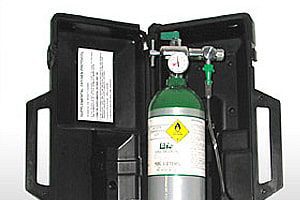
A couple—Don Stranathan and Penny Blume—both fighting terminal lung cancer, were denied entry on a U.S. Airway’s flight that was bringing them to a clinical trial of new medication they hope will save Blume’s life. The two met in an online lung cancer support group and were scheduled to leave New York on October 24th, […]
 A couple—Don Stranathan and Penny Blume—both fighting terminal lung cancer, were denied entry on a U.S. Airway’s flight that was bringing them to a clinical trial of new medication they hope will save Blume’s life.
A couple—Don Stranathan and Penny Blume—both fighting terminal lung cancer, were denied entry on a U.S. Airway’s flight that was bringing them to a clinical trial of new medication they hope will save Blume’s life.
The two met in an online lung cancer support group and were scheduled to leave New York on October 24th, according to ABC’s “Good Morning America.” A number of airline delays and an issue over the couple’s oxygen tanks were responsible for their arriving three days later than planned in San Francisco.
Stranathan, 61, and Blume, 51, have been flying from New York and California for cancer treatments. Stranathan lives in Santa Rosa, California; Blume lives in Sullivan County, New York, according to “Good Morning America.” “Penny is so traumatized she will never fly again,” Stranathan told ABCNews.com. She has been receiving treatment for the most aggressive form of lung cancer for the past two and a-half years.
“Good Morning America” pointed out that with all of the medical trials occurring nationwide, people with disabilities face specific challenges when flying, most especially with airline delays at historic highs. “More and more people are flying with oxygen and no one was clear on requirements,” said Stranathan. The National Home Oxygen Association, noted that, for people who need oxygen, traveling can be “challenging” and patients must “negotiate many obstacles.” With every airline utilizing specific and varied rules, passengers must figure out and make their own arrangements, “Good Morning America” reported.
Lung cancer patients, including those the online group where Blume and Stranathan met, have discussed their anger over the couple’s travel nightmare by posting more than 100 Facebook and Twitter posts on LUNGevity, a research and advocacy group, according to “Good Morning America.
U.S. Airways said it was simply following regulations and that there was insufficient battery life on the oxygen device for the six-hour flight. Airline regulations for portable oxygen concentrators (POCs) indicate: “You should have enough battery power to run the device for at least 150 percent of the expected maximum flight duration, taking into consideration the possibility of delays or a damaged battery.”
A connection cancelation delayed the couple by three hours. When they boarded, they were immediately deplaned for not meeting regulations. U.S. Air staff suggest a company to overnight batteries; however, that would have cost $1,000. The airline put the couple up in a hotel and flew them to Newburgh for more batteries. Meanwhile their clothing and medical supplies were checked, so they could not attend to an external tumor on Blume’s body. At issue, according to Stranathan, is that the airlines should have advised them of the regulation on the first portion of the trip and not in Philadelphia after they had boarded.
The sheer amount of posts were noticed by the U.S. Airways customer service department, which sent an apology email and $100 in travel vouchers, which Stranathan described an “insult”; he plans to file a complaint under the 1990 Americans With Disabilities Act. The couple’s lung cancer community has also expressed dissatisfaction.
U.S. Airways representatives told ABCNews.com that its regulations protect passenger health. U.S. Airways spokesman Andrew Christie told ABCNews.com, “They were booked from Newburgh to San Francisco, but when they arrived in Philadelphia, we discovered Ms. Blume had only four hours of battery time on her oxygen container…. The flight time was six hours and 20 minutes, and the letter from her doctor stated she could only be out of oxygen for five minutes maximum, so we had to deny boarding for her own safety until she could find more batteries.”
In an email to U.S. Airways, Stranathan wrote, among other things that, “Your whole Twitter page is pink for breast cancer month, but your employees treat people with lung cancer and compromised immune systems like they are lepers. No one deserves cancer or to be treated the way we were the first day of this ordeal.”
“I got updates all over Facebook and Twitter from Don about all the difficulties they were having and my heart just broke for them,” said Katie Brown, director of support and advocacy for LUNGevity.
More battery-related cases:


